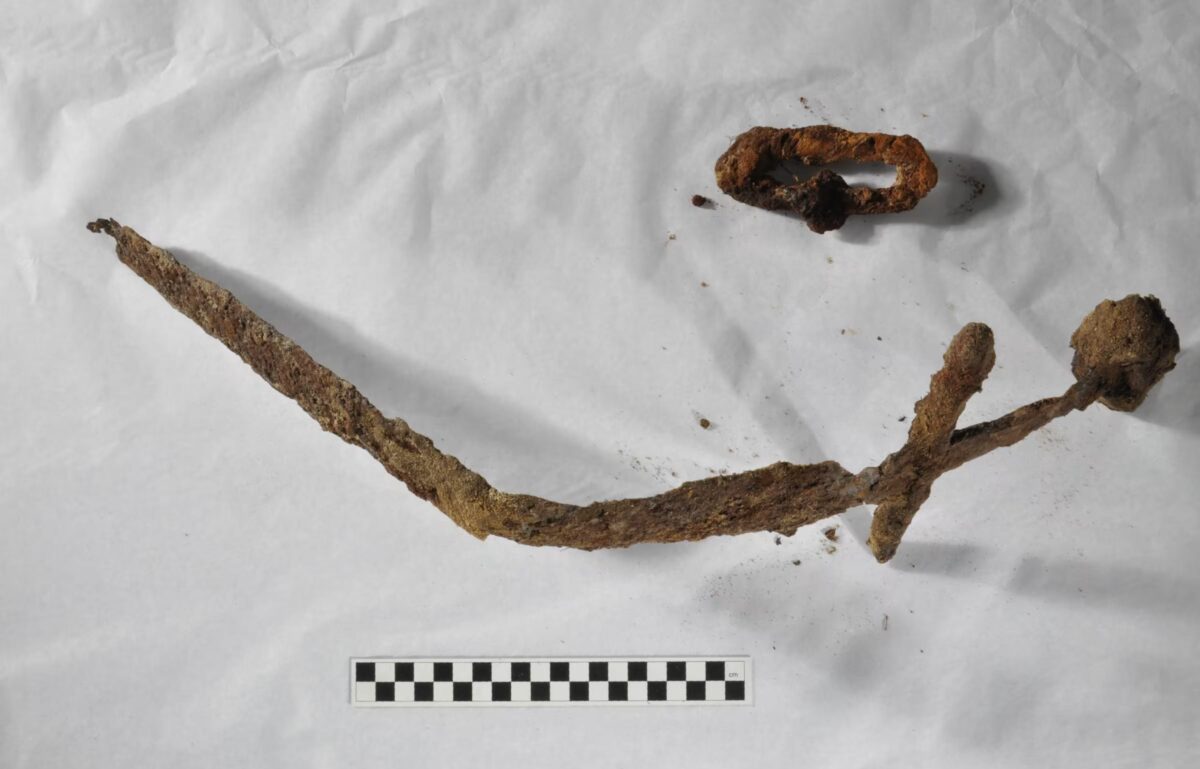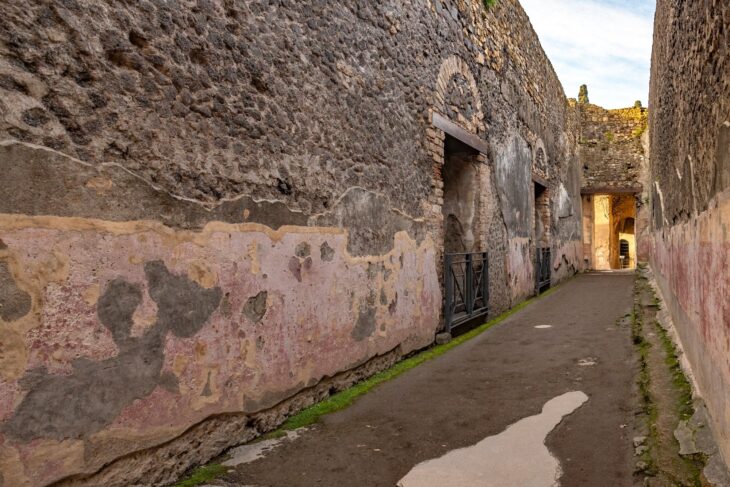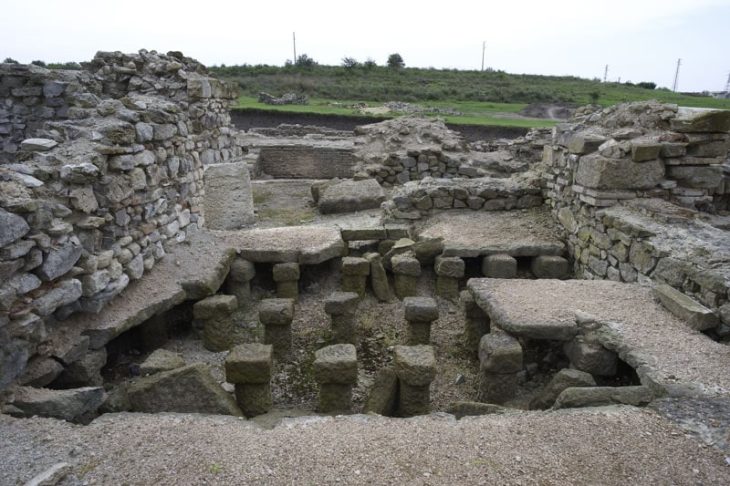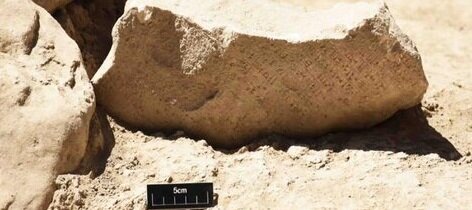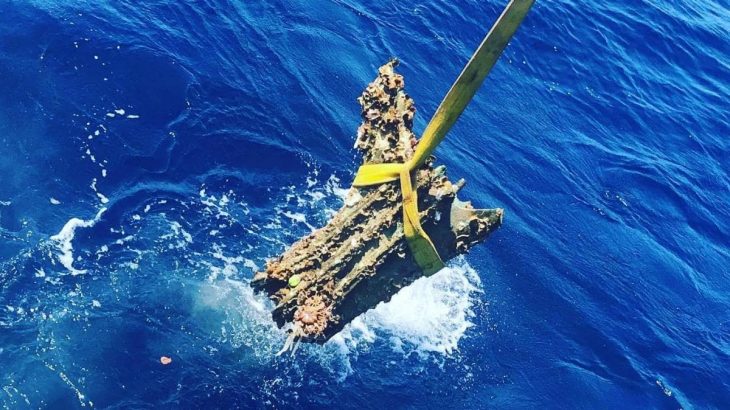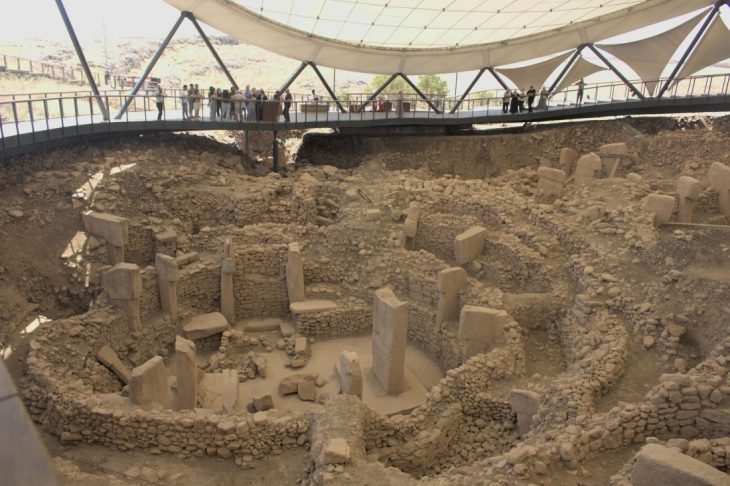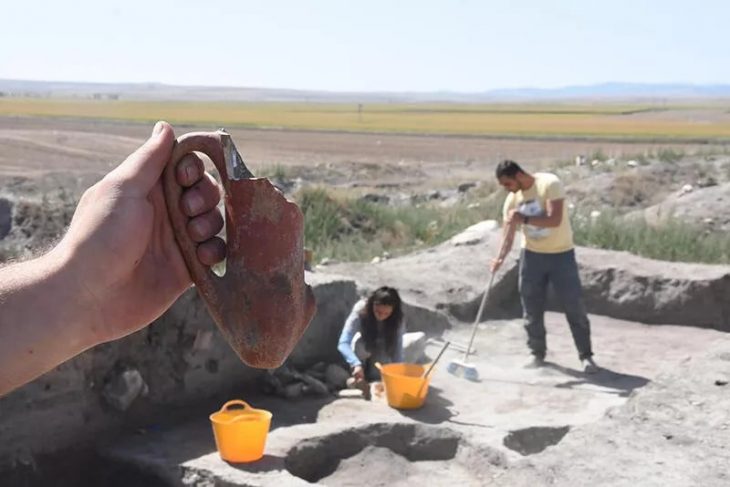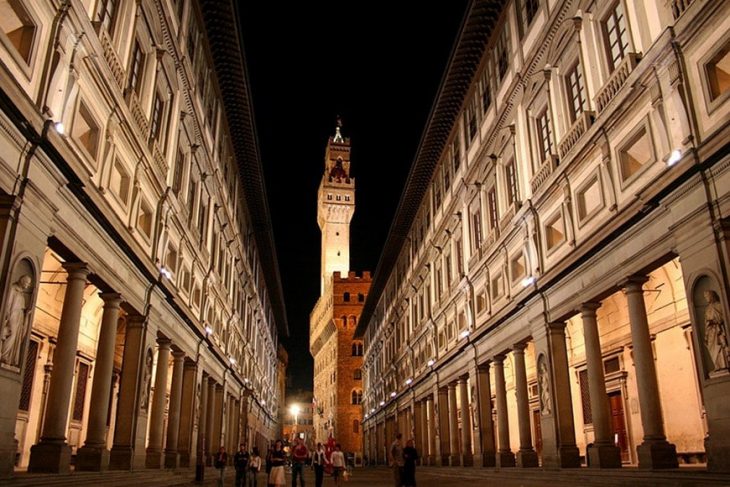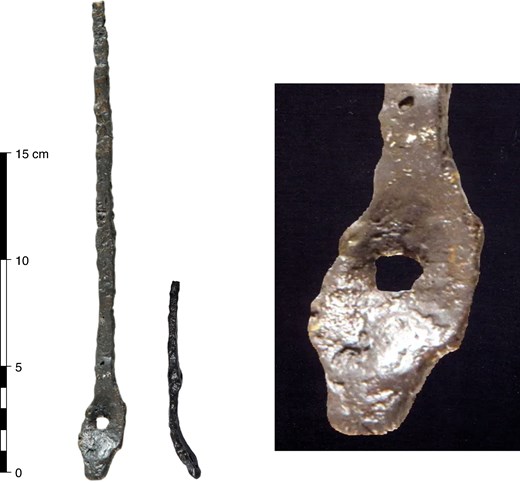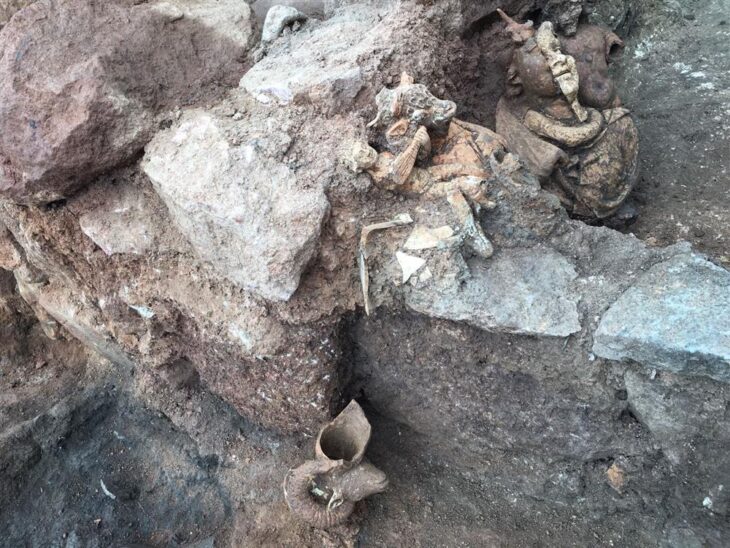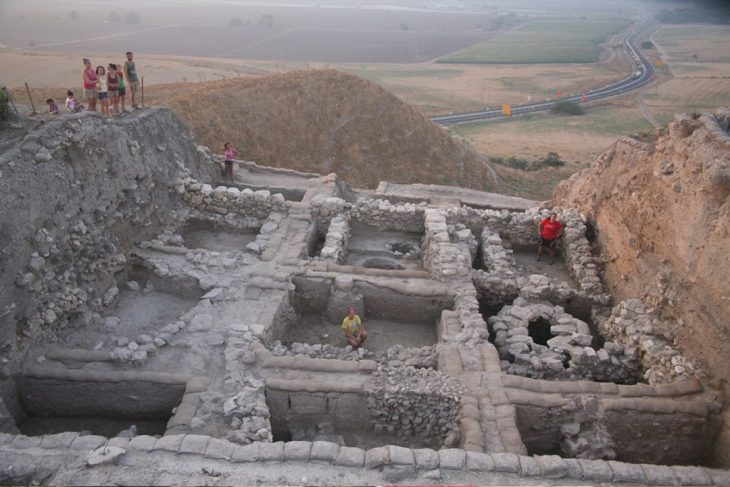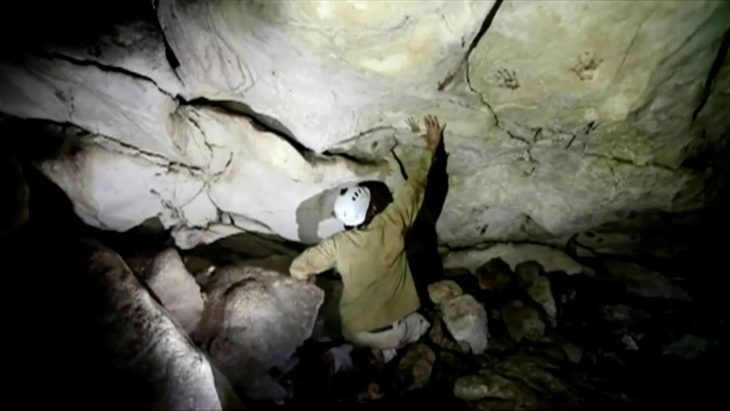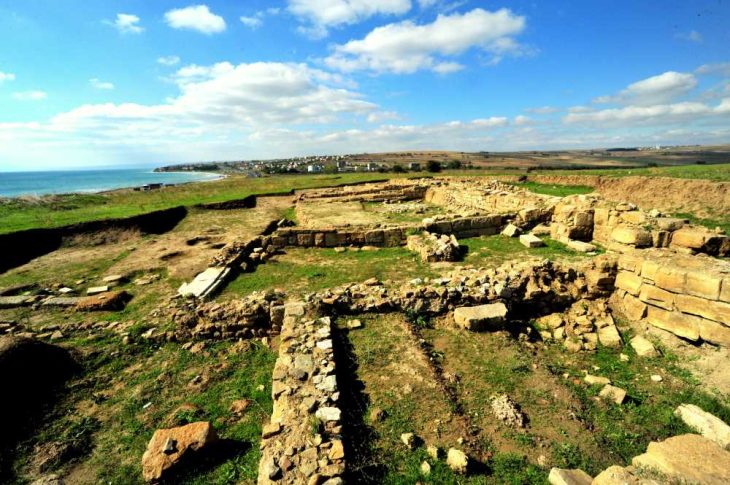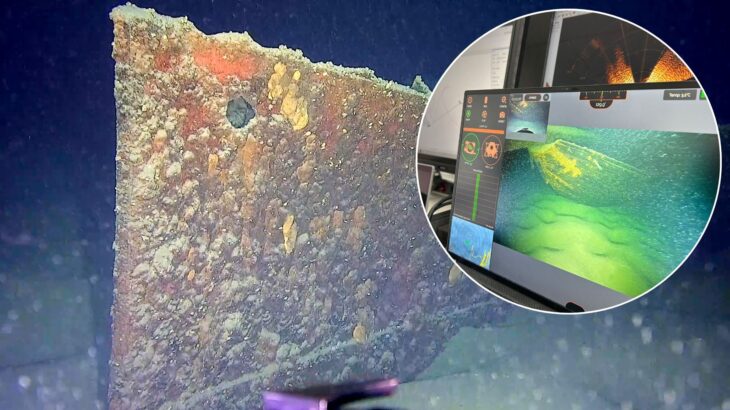A large cemetery from the time of the Crusades was discovered near a medieval stone church in Salo Perttel, a former municipality in Finland.
A landowner in the municipality of Salo was looking over excavation work for the installation of geothermal pipes when he spotted an iron object poking out of a mound of dirt. He pulled it out and found himself holding a nearly complete He was reported to archaeologists from the University of Turku and the Turku Museum Centre.
The find has now led to the discovery of an extensive grave field, not far from the grey granite medieval church of Pertteli.
The sword was discovered with a bent blade, a bar-like straight hilt, and a three-sided oval pommel. The researchers believe that it dates from between AD 1050 and 1150, during the Crusader Era. The sword’s scabbard, additional blade fragments, iron objects, and human remains were also discovered in the soil pile by archaeologists.
One of the most notable finds is a leather belt with thirty square rosette-patterned bronze ornaments. This was found with a buckle, several end and animal head buckles, strap dividers, and parts of the leather still preserved.
📣 Our WhatsApp channel is now LIVE! Stay up-to-date with the latest news and updates, just click here to follow us on WhatsApp and never miss a thing!!
This is the first confirmed discovery of a grave field dating to the end of the Iron Age in the Salonjoki river valley, according to the University of Turku.
The Crusader Era in Finland refers to the period when the First Swedish Crusade brought Christianity to Finland. Academics debate whether this crusade actually occurred because there is no supporting archaeological evidence and the earliest written sources date from the late 13th century.
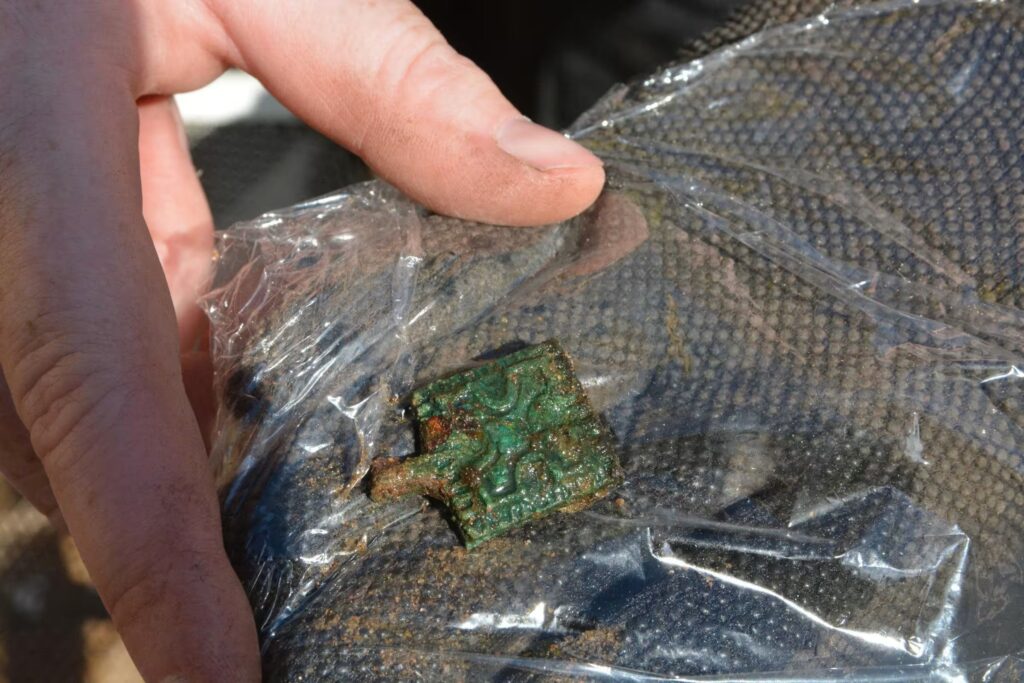
In this context, it is possible to say that the Crusades were a series of campaigns, traditionally considered to have begun in the 12th century and continued until the end of the 13th century, in which the Swedish Crown and the Catholic Church expanded and strengthened their control over a large part of what is now Finland.
A more detailed examination of the site showed that archaeologists were looking at more than a single grave. Altogether, eight graves were discovered. It is estimated that the site may contain dozens more burial sites, possibly as many as two hundred.
According to a press announcement by the University of Turku, “The observation can be considered very significant from a research point of view, because cremation cemeteries from the time of the Crusades are clearly less known in Finland than cremation cemeteries that preceded them in time. So far, this is also the only confirmed burials dating to the end of the Iron Age from the Salon or Uskelanjoki valley. Also notable, is the fact that the deceased have been buried in the cemetery with Christian customs.”
“The location of the site, in the immediate vicinity of a medieval stone church, can be considered as evidence of a much earlier church organization in the area than previously believed. It has been thought that Pertteli parish was established with the founding of the Uskela chapel in the 15th century,”.
Research on the finds will continue at least until the beginning of 2024. Radiocarbon dating is being carried out on the bone recovered from the site. The belt and a knife sheath are being x-rayed, further studied, and conserved.
Cover Photo: A sword dated to the Crusade period in Finland led archaeologists to identify an extensive medieval cemetery. Image: Riikka Saarinen / Turun Museokeskus

